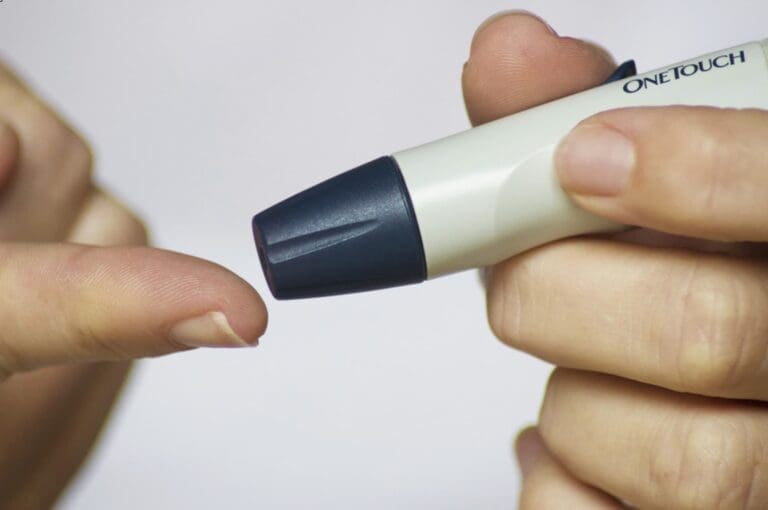If your goal is to lose weight, you might want to start by re-examining what is on your plate. It can be hard to lose weight if you are not eating the right types of meals. The best type of food for weight loss is going to be whole foods that are unprocessed and preferably organic.
Vegetables are a natural weight loss food and some of the healthiest food that you can eat. They are low in calories and fat plus they are high in fiber which can help keep you fuller for longer. As an added bonus, they can help you de-bloat and lower inflammation throughout your body.

How much is a serving of vegetables?nnWeekly vegetable amounts: You want to make sure you are eating a wide variety of vegetables so that you can soak up their individual nutrients such as fiber, antioxidants, vitamins and minerals to help keep you healthy. Below are the weekly amounts and types of vegetables that you should be eating based on the ,USDA vegetable recommendations.
The USDA recommends that you should be eating a variety of vegetables WEEKLY from the following subgroups:
-
- Dark-green vegetables: 1 ½ cups
-
- Red & orange vegetables: 5 ½ cups
-
- Beans & peas: 1 ½ cups
-
- Starchy vegetables: 5 cups
-
- Other vegetables: 4 cups
***The amounts above are for women. Men should add about a half cup of vegetables to each of these amounts.Daily vegetable amounts: According to the ,,USDA vegetable guidelines for adults, you should be consuming about 2-3 cups of vegetables per day. I encourage my clients to get around 3 cups of vegetables per day. The more active you are, the more vegetables you need to include in your diet.Nutrients you get from vegetables when you are eating a varied diet:
Fiber: Another benefit to eating vegetables is they contain fiber which helps to slow digestion, keeping you fuller longer and helping to balance blood sugar. According to the FDA, Americans should consume 28 grams of fiber per day if they’re following a 2,000 calorie diet.
Antioxidants: Vegetables also contain antioxidants that can prevent or slow damage to cells caused by free radicals protecting you from certain types of cancers. Antioxidant-rich vegetables include: broccoli, spinach, carrots, potatoes, artichokes, cabbage, asparagus, alfa sprouts, beets, onions, collard greens, and kale.
Vitamins and minerals: Vegetables are an important source of many nutrients that help keep you healthy by lowering your risk of chronic diseases such as heart disease, certain types of cancers, it can help lower blood pressure, improve digestion, and have a positive effect on blood sugar.
-
- Vitamin A: sweet potatoes, carrots, collard greens, swiss chard, spinach, kale, winter squash, red pepper
-
- Vitamin K: broccoli, brussel sprouts, collard greens, swiss chard, spinach, kale, mustard greens
-
- Vitamin C: broccoli, brussel sprouts, sweet yellow peppers, kale, mustard greens, chili peppers
-
- Folate (folic acid): asparagus, beets, broccoli, brussel sprouts, spinach, kale
-
- Potassium: swiss chard, acorn squash, spinach, bok choy, mushrooms, sweet potatoes, brussel sprouts, broccoli, artichoke, green peas, asparagus
-
- Magnesium: spinach, swiss chard, acorn squash, artichoke, green peas, kale, okra, potatoes
-
- Iron: collard greens, swiss chard, spinach, kale, potatoes, mushrooms
-
- Calcium: collard greens, spinach, kale, rhubarb
How to build a plate when weight loss is your goal: When trying to lose weight, I recommend you first fill half your plate with vegetables, then focus on adding a low-fat organic protein, a portion of carbohydrates, and a small portion of healthy fat to complete your plate. If weight loss is your goal, I recommend you eat the vegetables on your plate first. You might want to eat a salad before your main meal or you can just start with the vegetables that are on your plate. When you eat your vegetables first, you are filling up on the lowest calorie food first and it can help you feel more full throughout your meal.
As you can see, there are so many more benefits of eating vegetables than just losing weight. They are an essential part of our diet to keep you healthy and strong for life. If you want to learn even more about why and how to add more vegetables to your diet, then I encourage you to sign up for my FREE ,7-Day Eat More Veggies Challenge! You will get over a week of emails that will help you along your journey to being the best version of yourself!







